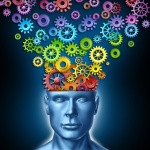Brain Games Myth
A new study reports all the hype over brain training to improve our memory may be exaggerated at best and possibly misleading.
In Phaedrus, Plato’s 2,400-year-old set of dialogues, Socrates narrates a conversation between the King of Egypt, Thamus, and a god, Theuth. Theuth had invented various fields of learning, including arithmetic, astronomy, geometry, and writing, and he wanted the king to share them with his people. While each discovery had its pros and cons, writing, Theuth said, was the best invention of all, since it would “improve both the wisdom and the memory of the Egyptians.” The king unconvinced, described writing as the “conceit of wisdom,” arguing that it would cause men to become forgetful, because they would rely upon written texts rather than remember things for themselves. The god’s discovery wasn’t a tool for memory, said the king. It would only enable reminiscence.
Almost two-and-a-half millennia later, our impulse to remember things, and to do so efficiently, remains fierce. The tools we use include grocery checklists, photo albums, flash cards, smartphone memos, and even scrawls on Post-Its. Over the past decade, digital brain-training games have emerged as the newest way to sharpen memory skills. They’re often touted as having a wide range of benefits, from helping people remember names and childhood stories to possibly staving off dementia and Alzheimer’s disease.
In October, Stanford University’s Center for Longevity and the Max Planck Institute for Human Development in Berlin asked a group of more than 70 neuroscientists, cognitive psychologists, and academics to share their views on these games. “There is little evidence that playing brain games improves underlying broad cognitive abilities, or that it enables one to better navigate a complex realm of everyday life,” the group wrote in a consensus report.
When a particular product is advertised as being both educational and backed by science, it can be hard to resist.
The validity of brain games has been a point of debate ever since the first iterations of them launched in the early 2000s. What’s notable about the Stanford/Max Planck report is its deliberation and scope, offering insight collected over the course of a year from experts based at 40 institutions in six different countries. (Disclaimer: I’m a research engineer in a physics laboratory based at Stanford University. However, my work is unrelated to the subject matter in the report.)
The report questions the “pernicious,” “exaggerated,” and “misleading” claims made by brain-game manufacturers and stresses that wide-reaching positive results are “elusive.” The signatories don’t call out any specific types of brain-training software, but their language is often damning. “Many scientists cringe at exuberant advertisements claiming improvements in the speed and efficiency of cognitive processing and dramatic gains in ‘intelligence,’” they write.
Brain training is projected to be a $3 billion industry by 2015. Its target demographic is vast, from kids lagging behind in school to seniors who’d love to be able to remember things more efficiently. Most people, in fact, would appreciate the opportunity to feel like they’re getting the most out of their brains, and when a particular product is advertised as being both educational and backed by science, it can be hard to resist.
Category: Anniversary




































